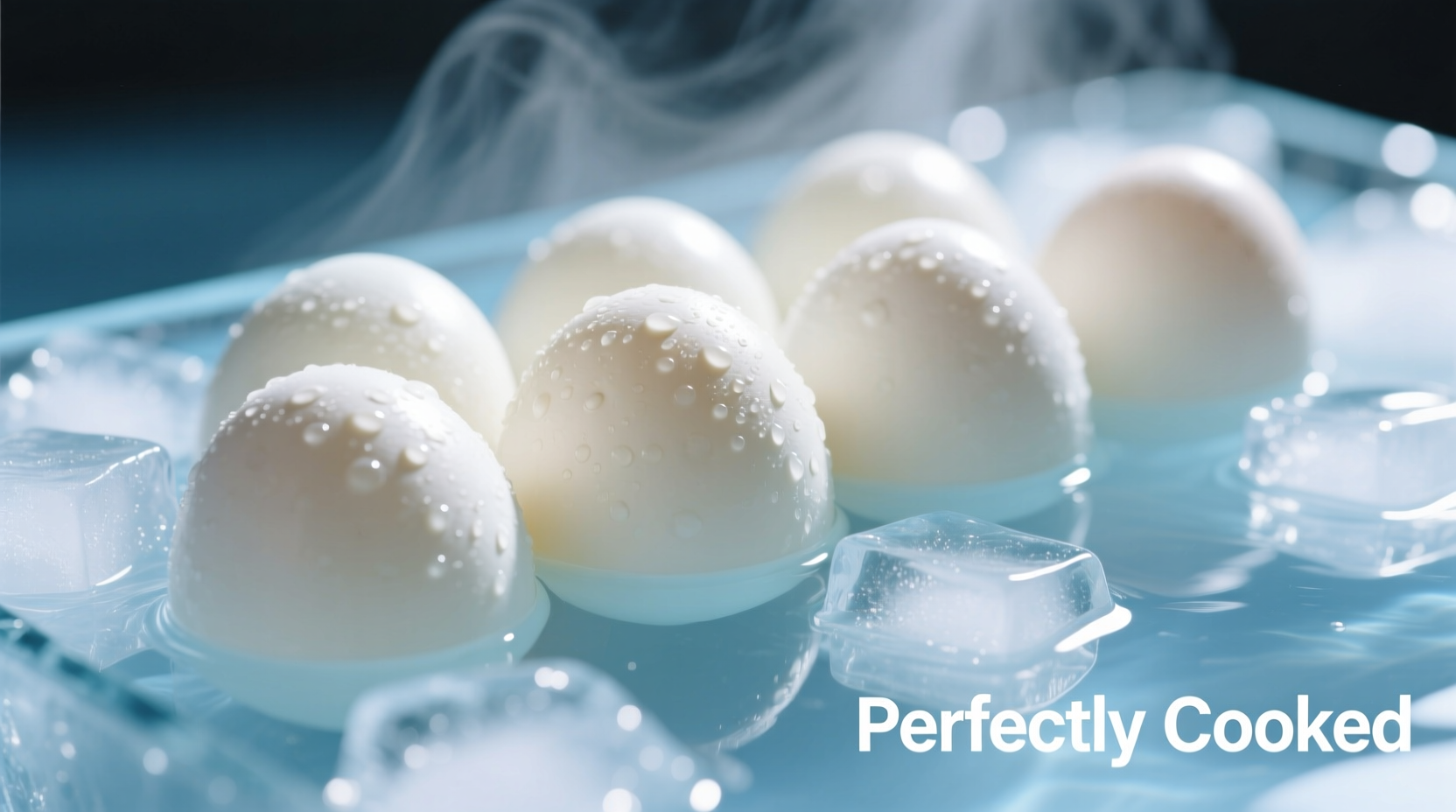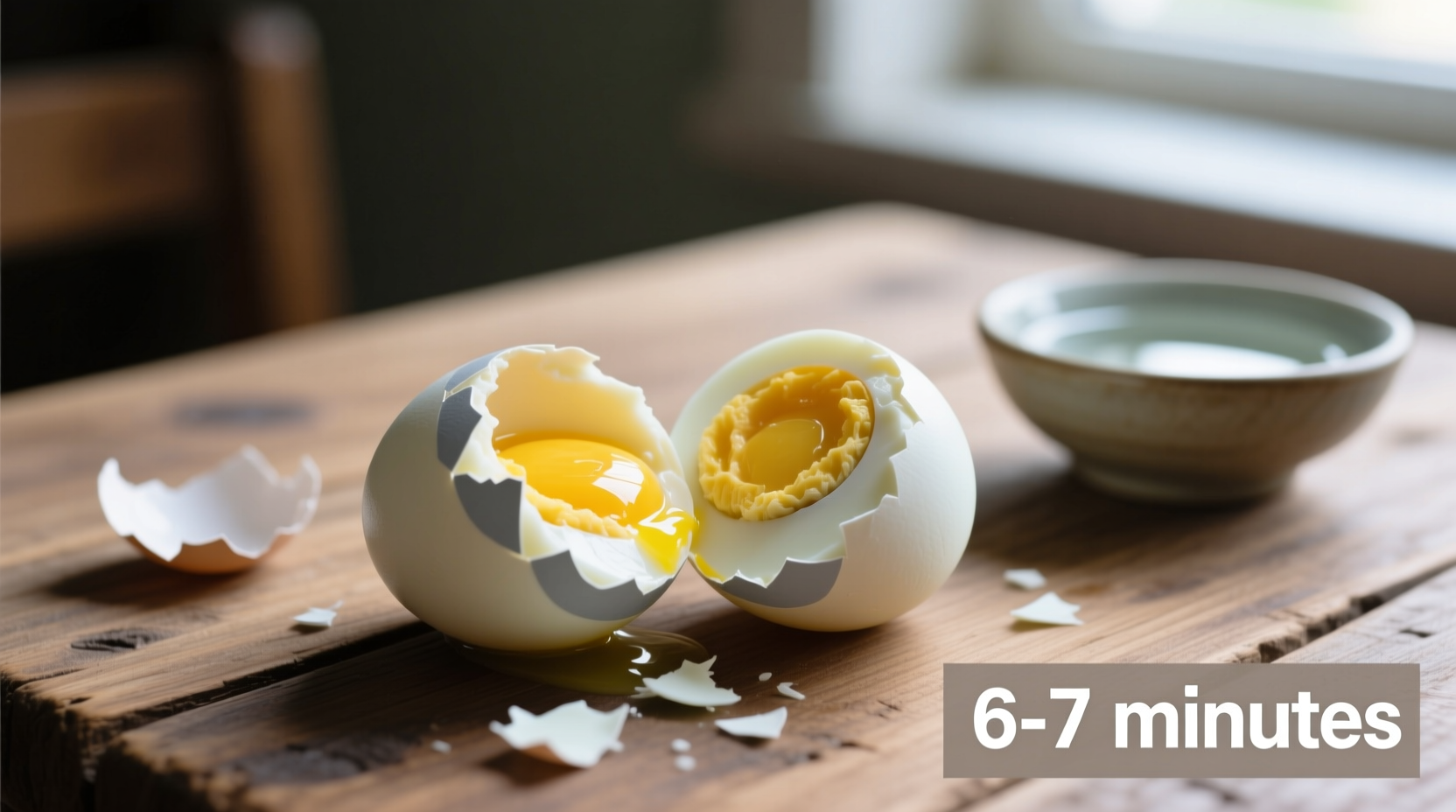For perfectly cooked hard boiled eggs with fully set yolks and no green ring, boil large eggs for 12 minutes after the water reaches a rolling boil. Start with room temperature eggs, use an ice bath immediately after cooking, and let them cool for at least 15 minutes before peeling for best results.
The Science Behind Perfect Hard Boiled Eggs
Understanding the chemistry of egg proteins helps explain why precise timing matters. Egg whites begin to set at 140°F (60°C) while yolks start firming up at 158°F (70°C). The dreaded green ring around yolks forms when sulfur in the egg white reacts with iron in the yolk at temperatures above 170°F (77°C) for extended periods. This USDA-recommended method prevents overcooking while ensuring food safety.
Factors That Affect Your Hard Boiled Egg Timing
Several variables influence the perfect cooking time for hard boiled eggs:
| Factor | Effect on Cooking Time | Recommendation |
|---|---|---|
| Egg size | Larger eggs need more time | Medium: 10 min, Large: 12 min, Extra Large: 14 min |
| Starting temperature | Cold eggs from fridge need slightly longer | Let eggs sit at room temp for 15-20 minutes before cooking |
| Altitude | Higher elevations lower boiling point | Add 1-2 minutes for every 5,000 feet above sea level |
| Number of eggs | More eggs cool water faster | Add 1-2 minutes when cooking more than 6 eggs |
Your Step-by-Step Perfect Hard Boiled Egg Method
Preparation Phase: Setting Up for Success
Before you start boiling, proper preparation prevents common problems. Select eggs that are at least 7-10 days old—older eggs peel more easily because the air pocket between the shell and membrane has expanded. Gently place eggs in a single layer in a saucepan, then cover with cold water to a depth of 1-2 inches above the eggs. Adding 1 teaspoon of vinegar or 1/2 teaspoon of baking soda to the water can help prevent cracking and make peeling easier.
Cooking Process: Timing for Perfect Results
Place your saucepan over medium-high heat and bring to a full rolling boil. Once boiling, set your timer immediately:
- Medium eggs: 10 minutes
- Large eggs: 12 minutes (most common size)
- Extra-large eggs: 14 minutes
- Jumbo eggs: 15 minutes
Never boil eggs for more than 15 minutes regardless of size—this prevents the sulfur-iron reaction that creates the unappetizing green ring around the yolk. For reference, the British Egg Information Service confirms that 12 minutes is the optimal time for large eggs to achieve firm but not rubbery texture.

Cooling Technique: The Critical Step Many Skip
Immediately after the timer ends, carefully drain the hot water and transfer eggs to a large bowl filled with ice water. Let them cool for at least 15 minutes—this rapid cooling stops the cooking process, prevents the green ring, and creates a small air pocket that makes peeling easier. The temperature shock causes the cooked egg to contract slightly away from the shell. Food scientists at the USDA National Institute of Food and Agriculture confirm this method preserves both texture and nutritional value.
Peeling Perfection: Getting That Smooth Finish
To peel without frustration, gently tap the egg on a hard surface to create cracks all over, then roll it between your palms to loosen the shell. Start peeling from the wider end where the air pocket is largest. Holding the egg under running water or peeling underwater helps separate the membrane from the egg white. For stubborn eggs, try peeling under a gentle stream of cold water—the water gets between the shell and egg, facilitating removal.
Storage Guidelines: Keeping Your Hard Boiled Eggs Fresh
Store unpeeled hard boiled eggs in a covered container in the refrigerator for up to one week. The shell protects the egg from absorbing refrigerator odors and moisture loss. If you've already peeled them, place in a sealed container with a damp paper towel to maintain moisture. According to the USDA Food Safety and Inspection Service, peeled hard boiled eggs should be consumed within 5 days for best quality and safety.
Troubleshooting Common Hard Boiled Egg Problems
Green ring around yolk: Caused by overcooking or leaving eggs in hot water too long after cooking. Solution: Reduce cooking time by 1-2 minutes and ensure immediate transfer to ice bath.
Cracked shells during cooking: Usually happens when cold eggs hit boiling water. Solution: Start with room temperature eggs and add them gently to simmering (not boiling) water.
Difficult peeling: Fresh eggs have lower pH which makes the membrane stick to the shell. Solution: Use eggs that are at least 7-10 days old, and ensure proper cooling in ice bath for 15+ minutes.
Rubbery texture: Result of excessive cooking time. Solution: Follow precise timing guidelines based on egg size and remove from heat immediately when timer ends.











 浙公网安备
33010002000092号
浙公网安备
33010002000092号 浙B2-20120091-4
浙B2-20120091-4